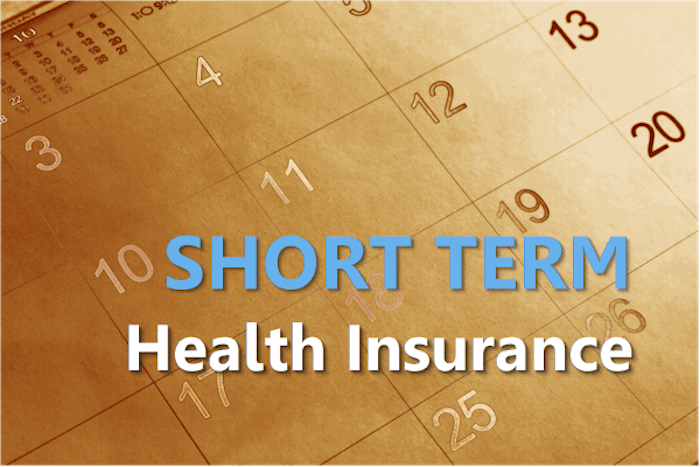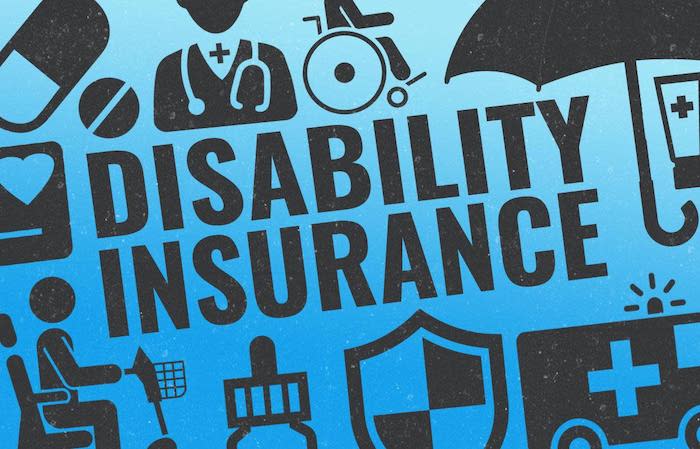Are you considering a short-term health insurance plan? Before you decide, it’s important to understand the advantages and disadvantages of these plans. In this article, we’ll explore the pros and cons of short-term plans, so you can make an informed decision. We’ll discuss these plans’ cost savings, coverage options, and potential drawbacks. By the end of this article, you’ll better understand whether a short-term health insurance plan is right for you.
Overview of Short-Term Health Insurance Plans
Short-term health insurance plans are a type of health insurance that provides coverage for a limited period, usually ranging from one month to one year. These plans are designed to provide coverage for individuals between jobs, who have recently graduated from college, or who are between other health insurance plans.
Short-term health insurance plans are typically less expensive than traditional ones and can provide coverage for various medical services. These plans typically cover doctor visits, hospitalization, emergency room visits, prescription drugs, and preventive care. They may also cover certain mental health services, such as counselling and therapy.
Short-term health insurance plans are not subject to the same regulations as traditional ones, so they do not have to comply with the Affordable Care Act (ACA). These plans may not cover certain services, such as maternity care, mental health services, or pre-existing conditions. Additionally, these plans may have higher deductibles and co-pays than traditional health insurance plans.
It is important to note that short-term health insurance plans do not provide the same level of coverage as traditional health insurance plans. These plans are designed to provide coverage for a limited period and are not intended to be a long-term solution. Individuals should consider their healthcare needs and budget when deciding whether to purchase a short-term health insurance plan.
Pros and Cons of Short-Term Health Insurance Plans
Short-term health insurance plans are attractive for individuals and families looking for coverage but don’t want to commit to a long-term plan. These plans provide coverage for a limited period, usually three to twelve months, and can be a great way to bridge the gap between jobs or other life changes. However, consider some pros and cons before deciding if a short-term health insurance plan is right for you.
The primary benefit of a short-term health insurance plan is that it can provide coverage for a limited period. This is great for those needing coverage for a specific period, such as while between jobs or waiting for a more comprehensive plan to take effect. Short-term plans are also generally more affordable than traditional health insurance plans, making them an attractive option for those on a budget.
However, there are some drawbacks to short-term health insurance plans. One of the most significant is that these plans often have more limited coverage than traditional plans. They may not cover certain services, such as preventive care or prescription drugs, and may have higher deductibles and co-pays. Additionally, these plans are not subject to the same regulations as traditional plans, so they may not provide the same level of consumer protection.
Finally, short-term health insurance plans are not available in all states. Some states have banned them, so it’s important to check with your state’s insurance department to see if they are available in your area.
In conclusion, short-term health insurance plans can be a great option for those needing coverage for a limited time. However, it’s important to understand these plans’ pros and cons before deciding. Be sure to research the coverage and regulations in your state and consider all of your options before deciding.
Coverage Options and Costs of Short-Term Health Insurance Plans
Short-term health insurance plans are an affordable and flexible option for those who are looking for temporary coverage. These plans are designed to provide coverage for a specific period, usually up to three months. They are ideal for those between jobs, waiting for their employer-sponsored health insurance to kick in, or those unable to qualify for traditional health insurance due to pre-existing conditions.
Short-term health insurance plans vary greatly when it comes to coverage options and costs. The type of coverage you can expect to receive depends on the plan you choose. Most plans will cover basic medical services such as doctor visits, emergency room visits, hospitalization, and prescription drugs. Some plans may also offer mental health services, vision care, and dental care coverage. The amount of coverage and the specific services covered will vary depending on your chosen plan.
The cost of short-term health insurance plans can also vary significantly. Generally, these plans are more affordable than traditional health insurance plans, as they are designed to provide coverage for a shorter period. The plan’s cost will depend on the type of coverage you choose, the length of the plan, and the deductible you select. Generally, the higher the deductible, the lower the monthly premium.
Overall, short-term health insurance plans are an affordable and flexible option for those who are looking for temporary coverage. They have various coverage options and costs, so it is important to research and find the plan that best meets your needs.
Eligibility Requirements for Short-Term Health Insurance Plans
Short-term health insurance plans are an increasingly popular option for individuals and families looking for an affordable way to cover medical expenses. These plans are designed to provide coverage for a specific period, usually up to 12 months, and are typically much less expensive than traditional health insurance plans. However, some eligibility requirements must be met to qualify for a short-term health insurance plan.
Applicants must meet certain criteria to be eligible for a short-term health insurance plan. Generally, applicants must be at least 18 years of age and a U.S. citizen or legal resident. Additionally, applicants must not have any existing medical conditions that would make them ineligible for coverage. In some cases, applicants may be required to provide proof of income to qualify for a short-term health insurance plan.
It is important to note that short-term health insurance plans are not considered “minimum essential coverage” under the Affordable Care Act (ACA). As such, individuals who purchase short-term health insurance plans are not eligible for premium tax credits or cost-sharing reductions. Short-term health insurance plans do not cover pre-existing conditions, preventive care, or mental health services.
In addition to the eligibility requirements, knowing the limitations of short-term health insurance plans is important. These plans are designed to provide coverage for a specific period, usually up to 12 months. After this period, the coverage will expire, and the individual must purchase a new plan. Additionally, these plans do not cover pre-existing conditions, preventive care, or mental health services.
Short-term health insurance plans can be a great option for individuals and families looking for an affordable way to cover medical expenses. However, it is important to be aware of these plans’ eligibility requirements and limitations before making a decision.
Comparison of Short-Term Health Insurance Plans to Other Types of Health Insurance
Short-term health insurance plans are a type of health insurance coverage that is designed to provide temporary coverage for individuals and families. These plans are typically less expensive than traditional health insurance plans. They can be a good option for those between jobs, waiting for employer-sponsored coverage to begin, or who are not eligible for other types of health insurance.
Short-term health insurance plans are typically available for up to 12 months and can be renewed for up to months. Coverage typically includes doctor visits, hospitals, prescription drugs, and other services. These plans do not cover pre-existing conditions, so it is important to understand the plan’s coverage before signing up.
Short-term health insurance plans differ from other types of health insurance in several ways. Traditional health insurance plans, such as employer-sponsored plans, are usually more comprehensive and provide more coverage than short-term plans. These plans also tend to have higher premiums and deductibles. Additionally, traditional health insurance plans are usually more expensive than short-term plans and may require a longer waiting period before coverage begins.
In contrast, short-term health insurance plans are typically less expensive than traditional ones and may have lower deductibles and co-pays. These plans are often more flexible and can be tailored to meet individual needs. Additionally, short-term plans typically have a shorter waiting period before coverage begins.
Short-term health insurance plans can be a good option for those needing temporary coverage or not eligible for other types of health insurance. However, it is important to understand the plan’s coverage and limitations before signing up. Additionally, it is important to compare the cost and coverage of short-term plans to other health insurance types to ensure it is the right choice for you.
FAQs
Q: What are short-term health insurance plans?
A: Short-term health insurance plans are health insurance policies that provide coverage for a limited period, typically between 30 days to 364 days. They are designed to provide temporary coverage for individuals who are between jobs, waiting for employer-sponsored coverage to start, or who need coverage outside of the Open Enrollment period.
Q: What are the advantages of short-term health insurance plans?
A: The advantages of short-term health insurance plans include lower premiums than traditional health insurance plans, flexibility in coverage periods, and the ability to choose from a range of coverage options. Short-term health insurance plans also do not require medical underwriting, which means that individuals with pre-existing conditions may be able to enroll.
Q: What are the disadvantages of short-term health insurance plans?
A: The disadvantages of short-term health insurance plans include limited coverage for pre-existing conditions, exclusion of certain benefits such as maternity care and mental health services, and the possibility of coverage gaps if the individual needs coverage beyond the plan period. Short-term health insurance plans also do not qualify as minimum essential coverage under the Affordable Care Act (ACA), which means that individuals who rely solely on short-term health insurance may face a tax penalty.
Q: Who is eligible for short-term health insurance plans?
A: Short-term health insurance plans are available to individuals who are under 65 years old and in good health. They are designed for individuals who need temporary coverage for a limited period, such as those who are between jobs or waiting for employer-sponsored coverage to start.
Q: How do short-term health insurance plans differ from traditional health insurance plans?
A: Short-term health insurance plans differ from traditional health insurance plans in several ways. Short-term health insurance plans offer limited coverage and are designed to provide temporary coverage for a specific period. Traditional health insurance plans provide comprehensive coverage and are designed to provide long-term coverage.
Q: Can short-term health insurance plans be renewed?
A: Short-term health insurance plans can be renewed, but the total duration of coverage cannot exceed 364 days, including any renewals. After this period, individuals will need to apply for a new short-term health insurance plan or enroll in a traditional health insurance plan.
Q: How do I know if a short-term health insurance plan is right for me?
A: Short-term health insurance plans may be a good fit for individuals who need temporary coverage for a specific period and who are in good health. However, it is important to carefully consider the limitations of short-term health insurance plans, such as limited coverage for pre-existing conditions and the exclusion of certain benefits. Individuals who require more comprehensive coverage or who have pre-existing conditions may be better suited to a traditional health insurance plan. It is recommended to consult with a licensed insurance agent to discuss individual needs and options.




